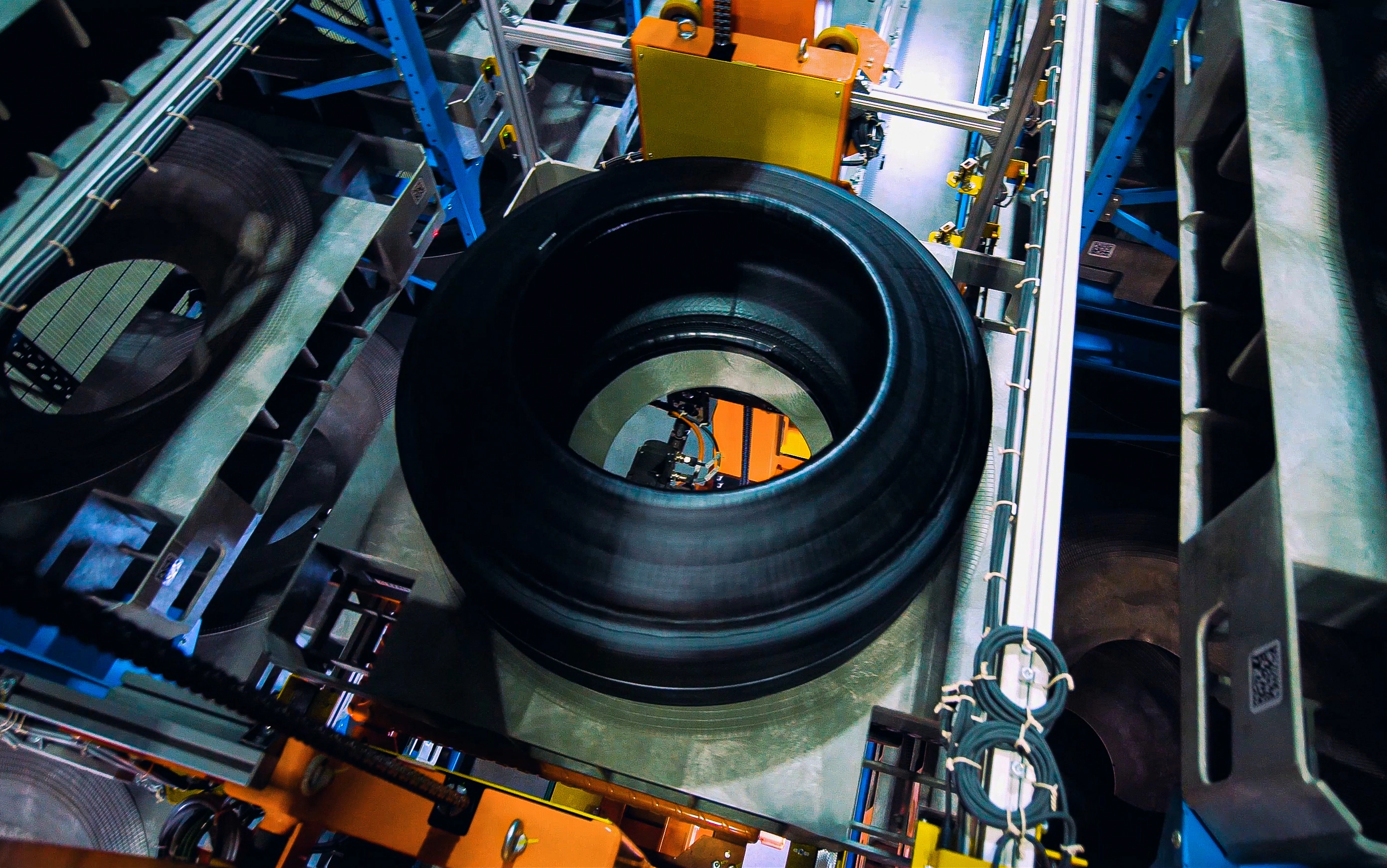RFID in the warehouse: a convenient alternative to barcodes

Proper organization of goods is the basis for the effective work of every warehouse. For many years, barcodes have been the most popular method of marking goods, however, they are now being phased out in favor of more advanced solutions such as RFID tags. What is this technology, how to implement it, and what benefits can be expected? We invite you to read our article, which describes how RFID can improve storage and transport in the warehouse.
RFID - what is it?
Before we move on to the application of RFID in the warehouse, it is worth taking a closer look at the definition of RFID technology itself. What is this solution? It is a marking system using small electronic labels (chips) that are read by special readers operating using radio waves. The main advantages of this technology are high performance and speed of operation, the ability to read even up to several meters away and in poor lighting conditions, as well as ensuring traceability at various stages of production and shipping. Initially, RFID tags were used in stores as anti-theft protection, but quickly gained recognition in the warehousing and transport sector as well. If you run a business related to this sector, it is definitely worth knowing what RFID is and what the benefits of using this system are.
RFID vs. barcodes
RFID is a technology that has developed to offer new possibilities in the identification and tracking of goods, and partly as a response to various problems associated with the use of barcodes for marking goods. Although standard barcodes have long been the mainstay of warehouse logistics, their use can be problematic. First of all, it should be noted that compared to RFID, they are very poorly resistant to abrasion, damage and other factors that weaken the legibility of markings. This is because barcodes use standard printing, which is relatively unreliable - especially with prolonged exposure to sunlight or moisture.
While barcodes can be integrated with automated systems, RFID offers significantly greater capabilities in this area. RFID can be easily integrated with modern readers, which speeds up inventory and reduces the risk of errors in labeling and registering goods. Thanks to these advantages, RFID is becoming an increasingly popular solution in warehouses.
Benefits of using RFID in the warehouse
Comparing the capabilities of barcodes with RFID tags, you can notice many potential benefits of using this solution. In addition to information about what RFID is, it is also worth paying attention to the following aspects:
-
RFID provides much more convenient scanning. The reading can take place over a greater distance, and the whole process is more susceptible to automation. In order to fully utilize the potential of RFID automation in the warehouse, appropriate warehouse equipment will be needed - however, the costs of such an investment are repaid in the form of greater efficiency, less frequent errors and faster goods handling.
-
More durable markings are another advantage of RFID technology. What does this mean? Increased durability means primarily resistance of chips to a number of external factors, as well as longer life due to the lack of the need for printing.
-
RFID in the warehouse also means greater flexibility and more possibilities related to inventory management. The information contained in the electronic label can not only contain more data, but also be updated and corrected on an ongoing basis.
-
All of the above issues boil down to the main benefit of using RFID, which is a noticeable acceleration of inventory taking. This can be observed especially in warehouses that use modern automation systems and contactless reading solutions. With their use, scanning and recording product data is much faster, and in addition, employees perform fewer manual tasks, which reduces the risk of errors.
RFID implementation in the warehouse - required hardware and tools
We already know what RFID is and what benefits this technology provides - it is also worth taking a look at what the warehouse equipment using such solutions should include. Importantly, the implementation of RFID will not always require the replacement of previously used devices. Many of them can be easily adapted to another system - the most important issue will be the appropriate selection of software for handling markings. By cooperating with MPL Techma, you can count on comprehensive support in the implementation of RFID in the warehouse, along with integration with other devices such as stackers, lifts, trolleys or conveyors.
So what should the equipment of a warehouse in which we want to implement RFID solutions look like? The basis is RFID tags and antennas responsible for receiving the signal. The functionality of the individual components of such a system should be adapted to the working conditions in a given warehouse: depending on the needs, chips in the form of self-adhesive labels or tags in a housing may be suitable. With the use of such solutions, you can prepare an efficient automated warehouse, in which the efficiency of work with markings is at the highest level. Thanks to such solutions, automation will be real help for the enterprise, limiting manual tasks of employees and reducing the risk of errors.
In addition, it is worth ensuring that the automated warehouse uses other advanced solutions, with which warehouse logistics will achieve even higher efficiency. Industrial robots are increasingly used - this is invaluable support not only in production processes, but also in storing goods. Additionally, a modern automated warehouse should also include stackers, trolleys, lifts and other transport solutions integrated with WMS, WCS or ERP software.
Areas of RFID application
In addition to using RFID in the warehouse, there are also many other areas where RFID technology is used. What are these applications? One of the main sectors using this solution is trade and transport - fast, precise reading of markings allows for accurate tracking of goods at every stage of the path from manufacturer to end customer. Another important area of RFID use is production automation. This is particularly useful in facilities that combine production and warehousing processes - a unified, efficient marking system provides effective support for intralogistics processes, thus guaranteeing much higher work efficiency and better control over the tasks performed.
However, that's not all - RFID also plays a significant role in places where strict access or identity control is required. Cards with chips made in this technology are very often used in the production of ID cards used, among others, in offices, production halls and organizations. It is worth noting that RFID readers can not only handle the tags themselves, but also process other information, which allows for, among others, instant, precise recording of working hours or the moments when someone entered a building or room. Importantly, this application can also be found in warehouses. In addition to the basic use, which includes marking goods, RFID cards can be used to restrict access of unauthorized persons to specific areas. It is also worth mentioning more unusual applications of RFID chips - these include biochips, which are used, for example, to track the location of animals, but can even be implanted as implants under human skin. RFID technology is also increasingly used as a supplement or replacement for documents such as identity cards, passports or driver's licenses.
MPL Techma and RFID in your warehouse
How to assemble warehouse equipment to ensure the highest work efficiency? The best results can be achieved with modern solutions that ensure even higher efficiency, reduced error frequency and improved safety. Regardless of whether it is a high-bay warehouse or another point dealing with the storage and transport of goods, MPL Techma offers a range of advanced devices for handling warehouse processes. Our assortment includes equipment such as stackers, trolleys, lifts and conveyors, and we also provide support in integration with warehouse management software. We emphasize automation to ensure our clients a real increase in efficiency. We have many years of experience and knowledge gained during the implementation of projects for various companies - visit our website or contact our representatives to learn more.

